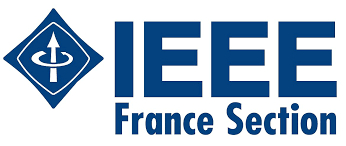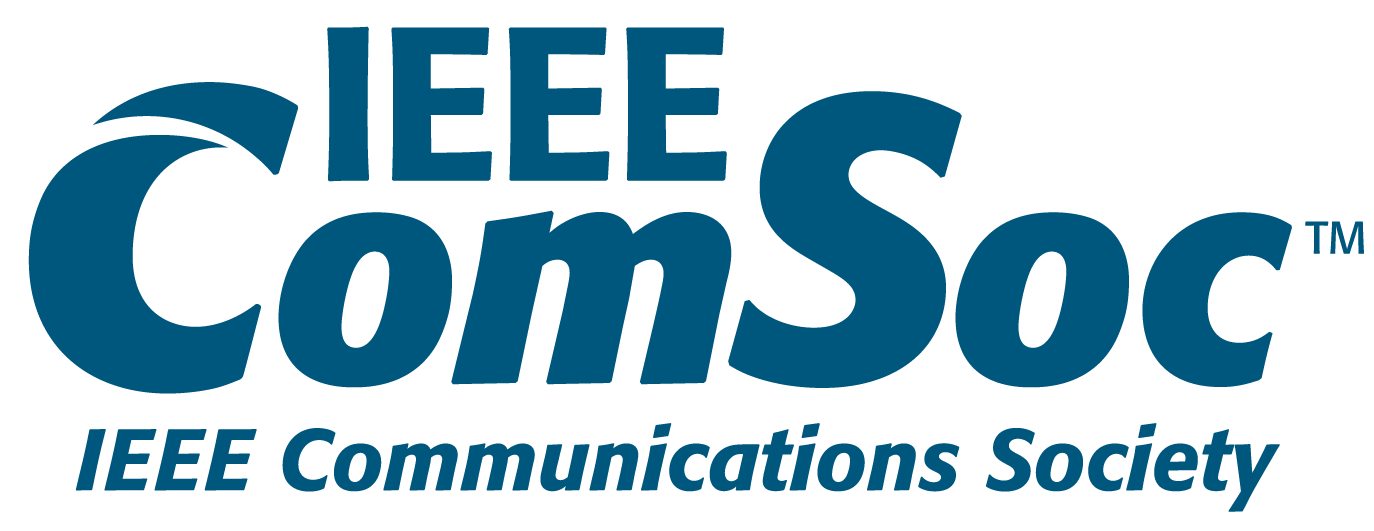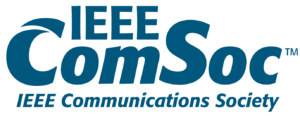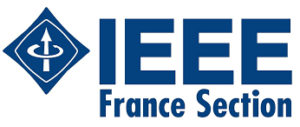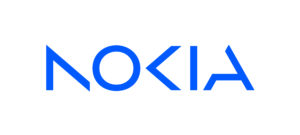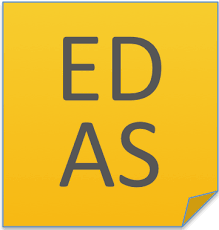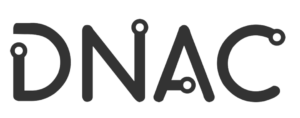Tutorials
Tutorial #1: The Power of Synergy: how Edge Computing and FANET revolutionize Telecommunications
Tuesday, 11 March
Abstract: This tutorial explores the role of FANETs in enhancing connectivity and computing capabilities in 5G/6G networks, allowing the possibility to extend cloud computing to the far-edge, providing networking and computing resources near the final users, in both smart cities or extreme environments. The tutorial discusses benefits and challenges regarding the use of FANETs. Practical use cases in the above-mentioned environments are presented, highlighting strategies for service provision and energy-efficient function placement on UAVs. Additionally, the tutorial addresses AI-based solutions for efficient data offloading to meet processing and latency requirements. At the end of the proposed 90-minute tutorial, the audience is expected to have a clear understanding of the potential application of FANET-based solutions to extend 5G/6G networks at the far edge. They should recognize that while FANETs represent a significant potential, they also require precise design to address specific challenges related to the type of nodes they comprise.

Christian Grasso
(University of Catania, Italy)
Bio: Christian Grasso is an Assistant Professor with the Department of Electrical, Electronic and Computer Engineering at the University of Catania. He received the Master’s degree (cum laude) in Telecommunications Engineering and the Ph.D. in Systems, Energy, Computer and Telecommunications Engineering at the University of Catania in 2017 and 2021 respectively. His research regards study and application of resource orchestration in 5G&B environments for creating and managing network slices using SDN, NFV, MEC and AI techniques in low and ultra-low latency demanding services, especially in the context of UAVs and FANET. He was involved in the H2020 European Projects INPUT, Triangle, 5GINFIRE, FLAME, and in several national projects. He is working on the PNRR project SAMOTHRACE – Sicilian Micronano Tech Research and Innovation Center. He has co-authored many publications in international journals and conferences, and he was involved in drafting the CNIT Technical Report-06 “Network Programmability: a (r)evolutionary approach”.

Giovanni Schembra
(University of Catania, Italy)
Bio: Giovanni Schembra is Full Professor at the Department of Electric, Electronic and Computer Engineering at the University of Catania. He received his degree in Electronics Engineering from the University of Catania, Italy, in 1991. In 1991-1992 he was with the Telecommunications Research Group of the Cefriel of Milan, working on traffic modelling and performance evaluation in broadband networks. He is Associate Editor of the IEEE Transactions on Network and Service Management, and has been co-lead Guest Editor of the IEEE TNSM SI series on Management of Softwarized Networks. Since 2017 he is in the Organized Committee of the IEEE Netsoft conference. He was involved in several projects, recently on projects regarding the application of AI at the edge of a 5G network, and the use of UAVs and Flying Adhoc NETworks (FANET) for far-edge and extreme-edge computing and for video surveillance applications in rural and smart city scenarios. He has organized many workshops regarding network softwarization and network intelligence.
Tutorial #2: The Trust Factor in IoT: How to Secure Your Smart World
Tuesday, 11 March
Abstract: In the IoT ecosystem, trust goes beyond security—it is about ensuring the reliability and integrity of data exchanged between devices. This tutorial delves into the concept of trust in IoT, focusing on how to establish confidence in the accuracy and consistency of data, even in environments where devices and networks are constantly evolving. You’ll learn how to implement strategies for trust management, ensure data provenance, and mitigate risks from faulty or compromised devices.
The goals of this tutorial:
- Discuss and test guidelines for developing a trust model, providing practical insights into crafting a model that evaluates the trustworthiness of IoT networks.
- Illustrate the importance of trust in IoT scenarios and explain how it differs from and complements security;
- Analyze behaviors and errors that undermine nodes reliability;
- Highlight current deficiencies in community-proposed trust models;
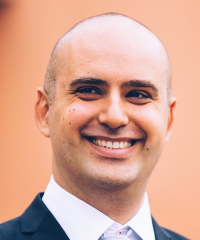
Michele Nitti
(University of Cagliari, Italy)
Bio: Michele Nitti is an Assistant Professor at the University of Cagliari, Italy since 2015. He has been/is involved in the organization of several conferences: he has been Vertical and Topical Program Co-Chair for the IEEE WF-IoT 2022, General Chair for the IEEE IoT V&T Summit 2021 on Tourism, and Technical
Program Co-Chair at the IEEE BMSB 2017. Currently, he is a member of the editorial board for the IEEE Internet of Things Journal, the Elsevier Computer Networks Journal and the MDPI IoT. Moreover, he is co-founder of an academic spin-off (GreenShare s.r.l.), which works in the mobility sector. He has been ranked in the “Top 2% World Ranking list of Scientists” for the years 2019-2023 and has received more than 4500 citations (source Google scholar). His main research interests are on Internet of Things (IoT), particularly on the creation of a network infrastructure to allow the objects to organize themselves according to a trustworthy social structure in Smart City scenarios.
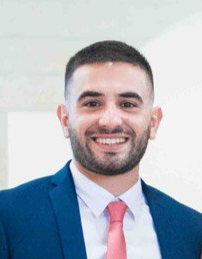
Claudio Marche
(University of Cagliari, Italy)
Bio: Claudio Marche is an Assistant Professor at the University of Cagliari; where he is a member of the Net4U research group. He received his PhD in Electronic and Computer Engineering in 2023 and the M.Sc. degree in Telecommunication Engineering with full marks in 2018 at the University of Cagliari. Claudio has served as an Editor Assistant for the special issue “Service Trustworthiness Management in the Internet of Things” published by MDPI IoT, and has presented a keynote, titled “Trustworthiness Management in the Social Internet of Things,” at the Third International Workshop on Social Internet of Anything (SIoA’24), held as part of the WiMob 2024 conference. Currently, he is a member of the editorial board for the IEEE Internet of Things Journal and for the Frontiers in Energy Efficiency Journal. His current research interests include the Internet of Things (IoT), Social Networks and Trustworthiness Management.
Tutorial #3: Greening the Network – Challenges and Solution Approaches for a Net Zero Internet
Thursday, 13 March
Abstract: Reducing humankind’s carbon footprint and greenhouse gas emissions to slow climate change is one of humanity’s Grand Challenges. Communication networks play an important role in addressing that challenge. On one hand, they enable applications that reduce the need for physical travel and that enable solutions that optimize efficiency of resource and energy usage, from teleworking to remote operations, from smarter agriculture to more energy-efficient factory floors. On the other hand, networks themselves (in addition to applications that run over them) have a significant environmental footprint rivaling that of entire countries. It is thus becoming important to make networks themselves “greener” and devise solutions that allow networks to be operated in ways that make them more sustainable while continuing to meet increasing traffic demands and service requirements.
Many of today’s network sustainability improvements relate to general advances in energy efficiency of computing hardware as well as in transmission technology (antennas, lasers). While this is where the biggest opportunities for networking infrastructure may lie, it is important to extend questions of greenness to other layers in the networking stack – to data and control plane, to routing and traffic forwarding, to the ways in which networks are organized and deployed.
For example:
- Can data planes be designed in ways that make them inherently more energy-efficient?
- What protocol advances could enable greener networking solutions?
- How can networks be optimized not just for QoS or utilization but for carbon?
- What novel tools are needed to operate networks more sustainably?
- How can peak demand be flattened to minimize waste due to overprovisioning?
- How can we even properly account for energy usage and other sustainability parameters to be optimized?
- In which ways can network programmability, faster control loops, and AI- or intent-based networking help?
The tutorial aims to provide a broad overview and convey a general understanding of the subject area, including of the factors which contribute to the environmental impact of networking, of technical challenges, pitfalls, and constraints in the development of solutions, and of selected solution approaches. The tutorial will also provide an overview of current standardization activities in that subject area (with an emphasis of activities that are currently taking place in the IETF and the Internet Architecture Board’s associated E-Impact Program). In addition, the tutorial will point out opportunities for further research and further engagement on the topic.
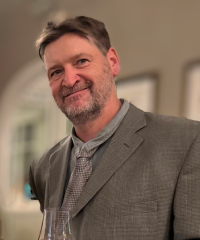
Cedric Westphal
(University of California, USA)
Bio: Cedric Westphal is an Associate Adjunct Professor in the Computer Science & Engineering Department at the University of California, Santa Cruz. His current focus is on networks for high performance computing, green networking and next generation Internet. He has been a Principal Research Architect with Futurewei working on future network architectures, both for wired and wireless networks from 2011 to 2024. He was an adjunct assistant, then associate professor with the
University of California, Santa Cruz from 2009 to 2019 in his first stint with the university.
Prior to Futurewei, he was with DOCOMO Innovations from 2007 to 2011 in the Networking Architecture Group focusing on next generation network architectures. He was at Nokia Research Center (now Nokia Bell Labs) from 2000 to 2006. He has received a MSEE in 1995 from Ecole Centrale Paris, and a MS (1995) and PhD (2000) in EE from the University of California, Los Angeles. From 1997 to 2000, he was a visiting researcher at Stanford University. Cedric Westphal has authored and coauthored over 150 journal and conference papers, including several best paper awards at conferences such as IEEE ICC’11, IEEE ICNC’18, IEEE MuSIC’16 and others. He has been awarded over thirty patents. He has received the IEEE Communication Society IINTC 2018 Technical Achievement Award to “recognize a lifelong set of outstanding technical contributions in the area of information infrastructure and networking.” He has also received the 2023 IEEE MMTC Best Conference Paper Award, for a paper on multimedia published in a conference in the three years prior. He is an associate editor for IEEE Transactions on Multimedia and for the ITU Journal on Future and Evolving Technology (J-FET), and was an area editor for the ACM/IEEE Transactions on Networking, an assistant editor for (Elsevier) Computer Networks journal, and a guest editor for Ad Hoc Networks journal and ACM/IEEE JSAC.
He has served as a reviewer for the NSF, GENI, the EU FP7, INRIA, and other funding agencies; he has chaired the technical program committee of several conferences, including IEEE ICC (NGN symposium), IEEE NFV-SDN or IEEE IPCCC, and he was the general chair for IEEE INFOCOM 2016. He is a senior member of the IEEE.

Alexander Clemm
(Futurewei Technologies, Inc., United States)
Bio: Alexander Clemm is a recognized expert in network management technology and networking software in which he has been involved throughout his career. His most recent activities have been in the areas of sustainable networking, future networking services, intent-based networking, service assurance, and telemetry. After 7+ years as a Distinguished Engineer at Futurewei and prior to that 18 years at Cisco, he recently decided to pursue an academic sabbatical and embark on new adventures. Alex has an extensive publication record including 70+ papers, 70+ patents, and 16 RFCs.
He has also been regularly serving on the organizing committees of various conferences, including IEEE/IFIP NOMS and IEEE NetSoft on several occasions as general co-chair or TPC co- chair. Alex is the recipient of the 2020 Salah Aidarous Award given by IEEE CNOM and IFIP TC6.6 to “an individual who has provided unremitting service and dedication to the IT and Telecommunications Network Operations and Management community”. He holds an M.S. degree from Stanford University and a Ph.D. from the University of Munich, Germany, both in Computer Science.
Tutorial #4: Time-Sensitive Networking in Safety-Critical Systems: Innovations, Challenges, and Practical Applications in Wired and Edge Networks
Thursday, 13 March
Abstract: Time-sensitive Networking (TSN) is a set of Ethernet standard amendments aimed to improve determinism in packet delivery for converged networks. TSN aims to provide mechanisms that enable low and predictable transmission latency and high availability for demanding applications such as real-time audio/video streaming, automotive, and industrial control. To provide the required guarantees, TSN integrates different traffic shaping mechanisms including 802.1Qbv, 802.1Qch, and 802.1Qcr, allowing for the coexistence of different traffic classes with different priorities on the same network. Achieving the required Quality of Service (QoS) level needs proper selection and configuration of shaping mechanisms, which is difficult due to the diversity in the requirements of the coexisting streams under the presence of potential end-system-induced jitter.
This tutorial explores the latest innovations and challenges in applying Time-Sensitive Networking (TSN) to safety-critical network infrastructure, such as industrial automation and transportation systems. It also examines the use of TSN in edge applications, where real-time data processing happens close to devices and sensors, often where wired and wireless networks meet. We will provide a comprehensive overview of key TSN standards, focusing on mechanisms like Enhancement for Scheduled Traffic, Credit-Based Shaping, and Frame Preemption that enable low-latency, reliable communication. The tutorial will showcase algorithms for scheduled traffic, comparing different approaches, including our own designs. It will also address key configuration challenges like optimizing bandwidth and ensuring accurate time synchronization.
We will also explore TSN’s role in providing reliability through Frame Replication, Per-Stream Filtering, and their impact on scheduling algorithms. Resource management, particularly TSN configuration via NETCONF/YANG, will be discussed with insights on centralized versus decentralized approaches.
Practical applications in factory automation and railway will be examined, alongside challenges in integrating TSN within Linux systems. We will showcase demos illustrating traffic control, queuing, and accuracy, and explore TSN’s potential in edge applications, especially when combining wireless and wired communication. The session will feature a demo simulating combined networks to demonstrate the effectiveness of edge algorithms, providing participants with hands-on insights into TSN’s practical deployment.
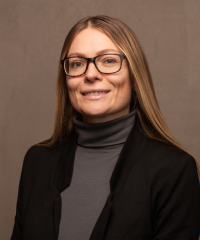
Anna Baron
(Friedrich-Alexander-Universität Erlangen-Nürnberg, Germany)
Bio: Anna Baron (born Arestova) received her M.Sc. degree in Information and Communication Technology from the Friedrich-Alexander-Universität Erlangen–Nürnberg, Germany, in 2018, and completed her Ph.D. in November 2024 in the Department of Computer Science at the same institution. Her research focuses on modeling and simulation of communication networks, and real-time scheduling. Throughout her Ph.D., she explored innovative approaches to enhance network reliability and performance in real-time environments.
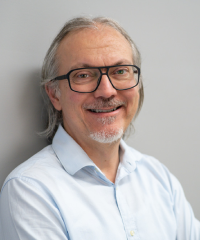
Andreas Kassler
(Deggendorf Institute, Deggendorf, Germany)
Bio: Andreas Kassler received his M.Sc. degree in Mathematics and Computer Science in 1995 from Universität Augsburg, Germany. He received the Ph.D. degree in Computer Science from Universität Ulm, Germany, in 2002 from the Department of Distributed Systems. He received the Docent title (Habilitation) in Computer Science from Karlstads Universitet in 2007. From 2003 to 2004, Dr. Andreas J. Kassler was Assistant Professor at the School of Computer Engineering, Nanyang Technological University, Singapore. He joined Karlstads Universitet (KAU) in 2005, where he is Full Professor in Computer Science since 2007. He joined Deggendorf Institute of Technology (DIT) in 2023 as Full Professor in Computer Science where he leads the Lab for Intelligent Networks and Systems (inets). His main research areas are in the area of programmable networks, hardware offloading, network function virtualization, software defined networks and network control and management.

